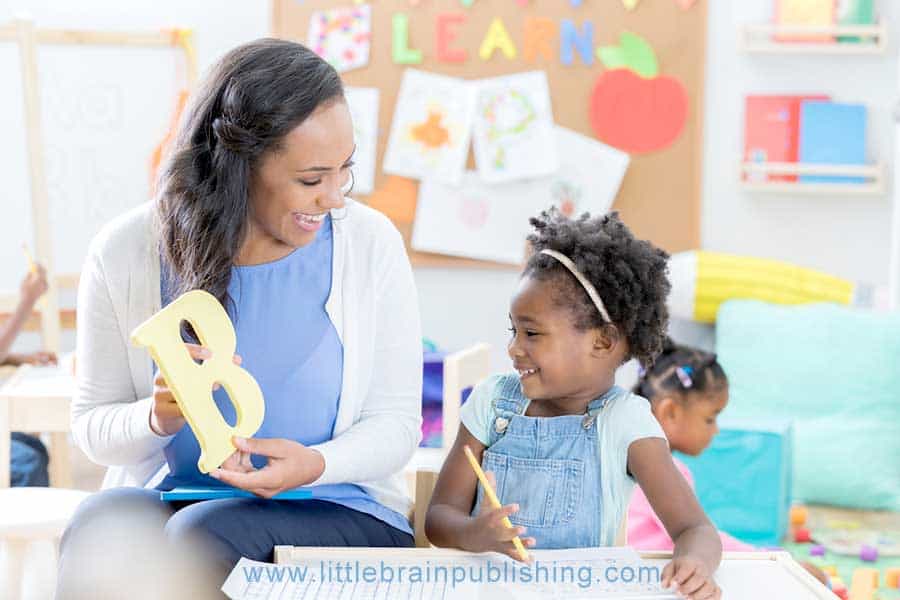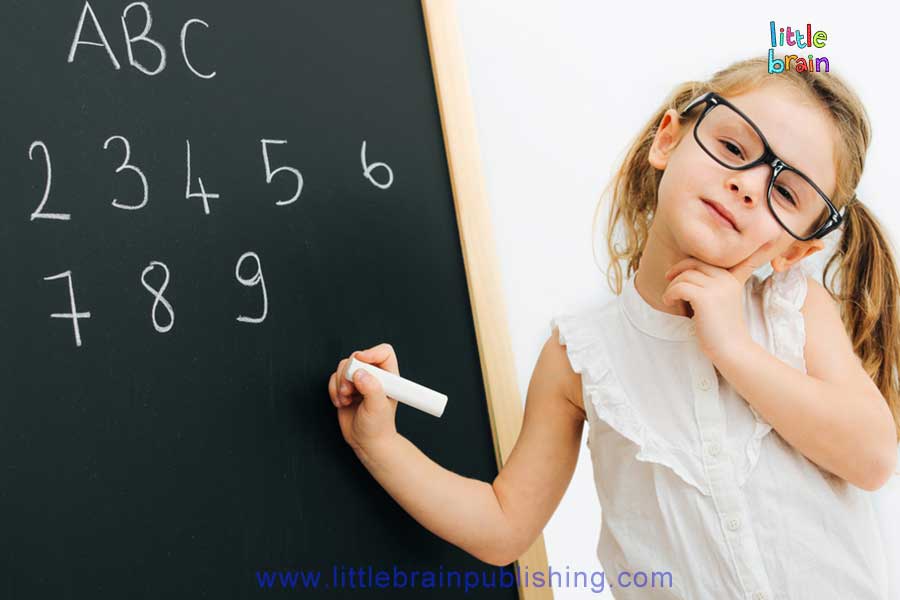Naturally, every parent wants what is best for their child. After all, they love them and hope they can live better days than them. With this much said, education is one of the sectors parents often pay attention to since experts often mention that it is the key to success.
Most guardians are around their children most of the time and hope to monitor their education level. So, are you a new parent who wants to better understand your child’s early education? If yes, then this article has something for you. Read on!

What age should a KID recognize letters and numbers? This question is common on different sites and social media posts, with many parents eager to learn. Unfortunately, there are no definite responses to this question. After all, kids are different, and it all comes back to their ability to comprehend things and their exposure.
Typically, most children are interested in letters and numbers between 2-3 years old. This statement doesn’t suggest they will know all of them at this age. They can recognize some of them in most cases and slowly pick up the rest in time. But, of course, we have sharp children who start recognizing them at 18 months.
If your kid isn’t interested in numbers and letters at 2-3 years, it doesn’t suggest they need to improve. Why? Because shapes, colors, and eating pencils look more attractive than studying numbers and letters at this age. However, as a parent, you can encourage them by singing the numbers and letters and buying flashcards and different letter shapes.
Don’t force anything on them since they are still young; they can learn everything eventually. Besides, if they have at least ten vocabulary words at this age, they are growing right, and with no time, they will pick up details on letters and numbers.
The process of recognizing letters and numbers requires the proper guidelines. So, the age at which a child should recognize letters and numbers is 4-5 years. This age is standard and represents the typical time when all these toddlers start going to preschool to learn from teachers. After all, numbers and letters seem simple, but children require a teacher to assist them in studying.
As mentioned above, recognizing letters and numbers has everything to do with an individual child and their environment and school. You should be okay with your child attending preschool. At most, they have no interest in the subject and prefer colors because it is the right age. After joining preschool, you can communicate with their preschool teacher to monitor their progress and listen to the educator’s ideas.
Can A 2 Or A 3-Year-Old Recognize Numbers?
Can a 2 or 3-year-old child recognize numbers? Yes. However, how many cases are there? Very few since a 2-3-year-old kid is a child who probably loves doing other things instead of counting numbers. And this statement doesn’t suggest they are no better than the other kids. Note that it is possible but not quite common since, at this age, most children are learning how to eat correctly, pick up shapes, play with colors, etc.

You can deduce one major thing; children are different. Some love numbers and are sharp enough to pick up everything at a young age. Others are having their best days playing around and having fun at this age. And having any of the two cases is okay and natural, and you don’t have to complain about your child’s ability.
Teaching experts often comment that they expect children only to know numbers at 2-3 years. Why? Naturally, learning numbers and recognition starts from sound, which is what preschool teachers work on achieving.
If you are observant enough, you realize that it may include some numbers among the vocabulary a 2-3-year-old child knows. But they need to be advanced in the area, making it hard to recognize them.
However, if you realize that your child is interested in numbers, you can try to assist them. How? Sing the numbers with them and expose them to counting. It is a natural way of drawing them in enough to be interested. Don’t force them; let them live and wait until their preschool days if they aren’t interested.
Parents tend to worry much about their children’s education settings, especially when they compare them to other kids. However, they seem to forget that children are different, especially in their learning capabilities. For example, if your child is 2 or 3 years old and doesn’t recognize numbers, that’s good; if they do, that’s even better. Typically, no teacher expects them to know these details at this age.
At what age bracket should you worry about your child’s counting ability? Only when your child joins a school at 4 or 5 will these things matter. They are free to play around and learn exciting things. After joining the school, then you can worry about these things. Make it a habit to communicate with their teachers to understand them better and offer the proper support. It isn’t wrong to have a child who recognizes numbers at 2-3 years; it’s a talent.

How High Should A Kindergarten Kid Count?
Kindergarten expectations are that at the end of this school-level period, every child should count to at least 100. It is a natural expectation that most kids realize. After all, with the guidance of an expert, kids recognize sounds, numbers, letters, etc.
Most preschool teachers start with numbers, especially counting numbers, allowing them to identify 1-9 and focus on saying them out and the order of counting.
The information above highlights what teachers and parents expect from a standard child. It represents the majority of the children. However, two other brackets don’t fit in this category. We have fast learners that wreck the natural curve of 100 numbers at the kindergarten level. These children can count more and comfortably recognize these numbers.
In most cases, they can count as high as 100 before kindergarten. So, don’t worry if your child seems to know much since they fit in this category.
The other group houses slow learners that need help with numbers. When joining a school, these kids know nothing and pick up things slower than a standard kid. And it is okay since different people have different capabilities. For example, some children can barely count up to 20, even after kindergarten. Fortunately, a preschool teacher will come in handy for the job.
Every parent needs to understand their child and their abilities. Whatever group your child belongs to, make it your business to support and encourage them.
Conclusion
Guardians tend to worry about their children’s education, which is excellent. But, some of them are naïve and handle things inappropriately, especially in the education sector. As a result, this article focuses on educating parents on a child’s early education levels. It focuses on answering FAQs such as the right age to recognize numbers and letters.
How high should a kindergarten child count numbers? Can 2- or 3-years kids recognize numbers? Learn more about this critical information by reading through the piece above.
